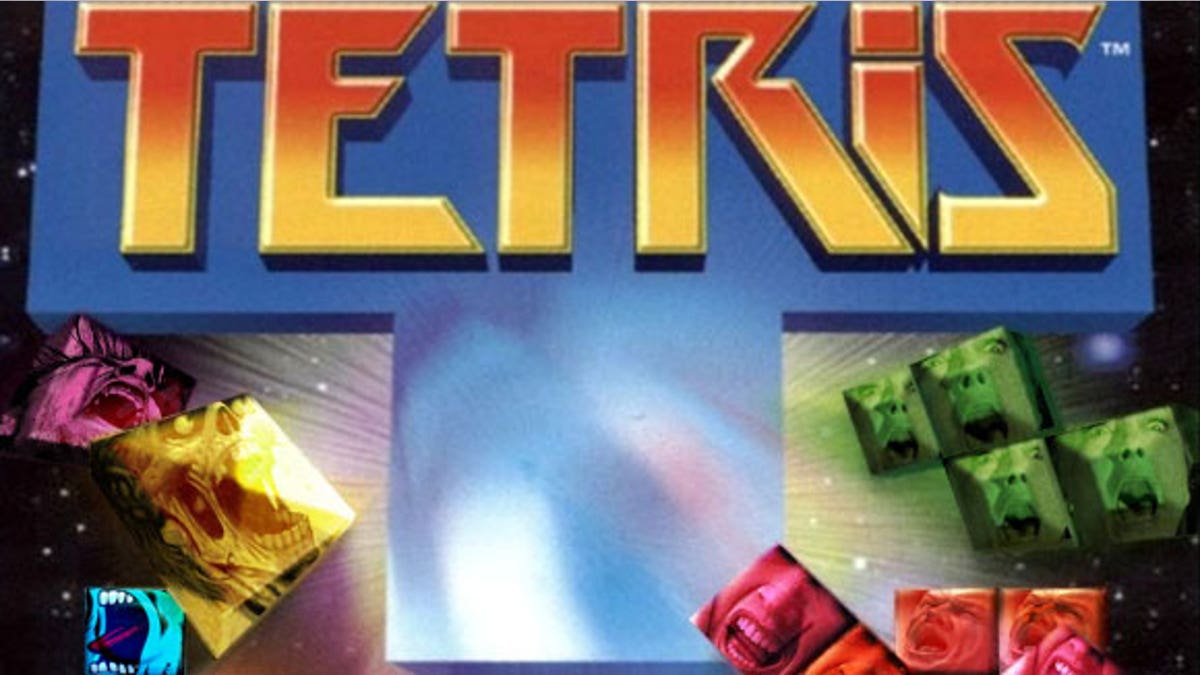
The video game Tetris may quell flashbacks of traumatic events in a way that other kinds of games can't, researchers have found.
The curious effect might have to do with how the shapes in the game compete with images of a traumatic scene when it comes to getting stored in one's memory.
Tetris, one of the most popular video games of all time, involves moving and rotating shapes falling down a playing field with the aim of creating horizontal lines of blocks without gaps.
In earlier work, scientists at Oxford University in England found that playing Tetris after traumatic events could reduce flashbacks in healthy volunteers. The hope of this research is to reduce the painful memories linked with post-traumatic stress disorder (PTSD).
Tetris therapy
To see if this effect was found only in Tetris or with other games as well, the researchers compared Tetris with Pub Quiz Machine 2008, a word-based quiz game. The investigators began by showing volunteers a gruesome film with traumatic images of injury and death, such as fatal traffic accidents and graphic scenes of human surgery.
After waiting a half-hour, in the first experiment, 20 volunteers played Tetris for 10 minutes, 20 played Pub Quiz and 20 did nothing. By examining diaries the volunteers kept for a week afterward to record any instances of flashbacks to the film, they found Tetris significantly reduced flashbacks while Pub Quiz significantly increased them. In a second experiment, the wait was extended to four hours, with 25 volunteers in each group and matching results.
"Our latest findings suggest Tetris is still effective as long as it is played within a four-hour window after viewing a stressful film," said researcher Emily Holmes, a research clinical psychologist at Oxford University. "Whilst playing Tetris can reduce flashback-type memories without wiping out the ability to make sense of the event, we have shown that not all computer games have this beneficial effect — some may even have a detrimental effect on how people deal with traumatic memories."
The split mind
To explain these unusual results, think of the mind as having two separate channels of thought. One is sensory, dealing with perceptions of the world as experienced through sight, sound, smell, taste and touch, while the other is conceptual, responsible for combining sensory details in a meaningful way.
These channels generally work in harmony with each other — for instance, we might see and hear someone talk and quickly comprehend what that person is saying. However, after traumatic events, the sensory channel is thought to overwhelm the conceptual one. As such, we are less likely to, for example, remember a high-speed traffic accident as a story than as a flash of headlights and the noise of a crash. These sensory details then intrude repeatedly in a victim's mind in the form of flashbacks, often causing great distress.
Past research suggested there is a timeframe of up to six hours after a trauma in which one can interfere with the way traumatic memories are formed in the mind. During this window of opportunity, certain tasks can compete with the same mental channels needed to form those memories, in much the same way it can prove hard to hold a conversation while solving a math problem.
As such, the Oxford team focused on Tetris, a task that demands visual attention and visual memory. They suggest the game achieves its beneficial effects regarding flashbacks by competing with traumatic details on the sensory channel. On the other hand, Pub Quiz might compete with the conceptual channel, reinforcing sensory details of traumatic events.
"These laboratory experiments can help us understand how unwanted flashback memories may be formed," Holmes told LiveScience. "This can help us better understand this fundamental aspect of human memory. It may also lead us to think about new ways to develop preventative treatments after trauma."
However, she cautioned that this is early stage laboratory research, and that further work is needed to move this into clinical situations.
The scientists detailed their findings online Nov. 10 in the journal PLoS ONE.
* Top 10 Mysteries of the Mind
* Top 10 Spooky Sleep Disorders
* Video Gamers Can Control Dreams, Study Suggests
Copyright © 2010 LiveScience.com. All Rights Reserved. This material may not be published, broadcast, rewritten or redistributed.








































